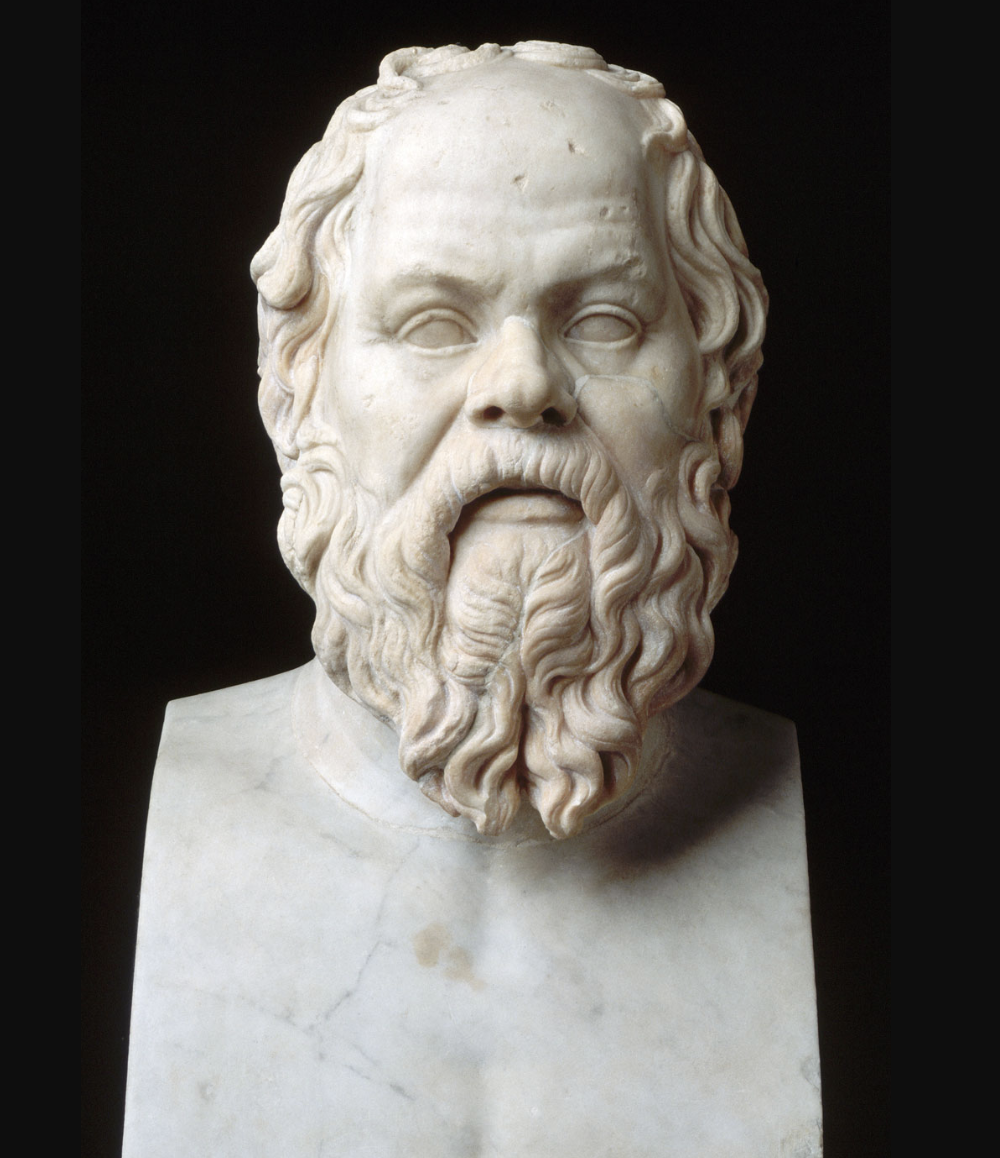
Socrates — The Courage to Question
Theodoros Kafantaris
Published on November 24, 2025
An inspirational introduction to the first great spark of Western philosophy
If you close your eyes and imagine ancient Athens, you might picture marble temples glowing beneath the Mediterranean sun, bustling markets, poets reciting verses, and politicians shouting in the assembly. But somewhere away from the noise—perhaps in a shaded corner of the agora—stood a man who looked more like a stonemason than a sage. His cloak was worn, his feet bare, his face plain and unremarkable. Yet people gathered around him, drawn by something invisible but powerful.
His name was Socrates, and he didn’t lecture, preach, or declare truths. Instead, he asked questions—simple questions that had a way of turning the world upside down.
“What is justice?”
“What is a good life?”
“How do you know what you think you know?”
Those questions still echo today, more than 2,400 years later.
The Man Who Refused to Pretend
Unlike other figures of history, Socrates left no writings. Everything we know about him comes from others—especially his students, like Plato. And maybe that’s fitting, because Socrates believed wisdom wasn’t something you owned; it was something you searched for.
He wandered Athens, speaking not to kings or scholars alone, but to merchants, craftsmen, young soldiers, ambitious politicians. He questioned everyone, not to humiliate them, but to awaken them. He thought the examined life—the life of awareness, honesty, and self-reflection—was the only life worth living.
But in a city proud of its knowledge, power, and culture, questioning became dangerous.
Athens was recovering from war and humiliation. People wanted certainty, not inquiry. Yet Socrates continued, calmly, persistently, asking one unsettling question after another.
Until the city decided it had heard enough.
The Trial That Changed History
Socrates was arrested and charged with:
-
corrupting the youth
-
refusing to honor the city’s gods
-
destabilizing public order
In truth, he committed only one crime:
He encouraged people to think for themselves.
At his trial, instead of pleading for mercy, he spoke with courage and clarity. He told the jury that his role was like a gadfly—the tiny creature that keeps a great horse from falling asleep. Athens, he said, needed someone to wake it from complacency.
He was sentenced to death.
His friends arranged a way for him to escape, but he refused. If he disobeyed the law, he said, he would contradict everything he had taught.
And so he drank a cup of hemlock, surrounded by those who loved him, calm and fearless to the end.
It wasn’t just a death.
It was a turning point in the story of human thought.
Why Socrates Still Matters
You don’t have to wear a toga or study ancient texts to feel the relevance of Socrates. His spirit lives in:
✅ Every child who asks “Why?”
✅ Every person who refuses to follow blindly
✅ Every moment we question ourselves honestly
✅ Every time we choose truth over comfort
✅ Every act of intellectual courage
Socrates teaches us that wisdom doesn’t mean knowing everything—it means being aware of how much you don’t know. Instead of building walls around beliefs, he opened doors.
In a world full of noise, certainty, and opinion,
Socrates invites us to listen, to reflect, and to grow.
The Socratic Method — Dialogue as Awakening
His most lasting gift is a way of thinking:
Ask. Reflect. Clarify. Challenge. Refine.
Not to win arguments…
but to discover truth together.
Imagine if our conversations today—online, at work, at home—followed this pattern. Imagine curiosity replacing defensiveness. Imagine discussion instead of division.
That is the power of Socrates.
Bringing Socrates Into Your Life
You don’t need philosophy training. Start simply:
⭐ 1. Ask yourself one deep question each day
“What would a good day look like?”
“What am I afraid to admit?”
“What truly matters to me?”
⭐ 2. Practice humble curiosity
Instead of saying “I’m right,” try “Help me understand.”
⭐ 3. Seek growth, not victory
Being wrong is not failure—it’s revelation.
⭐ 4. Choose awareness over autopilot
Notice your thoughts, habits, and motivations.
⭐ 5. Live with integrity
Align actions with values, even when inconvenient.
These practices don’t make life easier.
They make it fuller.
An Inspirational Takeaway
Socrates reminds us that wisdom doesn’t belong to the powerful, the famous, or the learned. It belongs to anyone brave enough to look inward.
You don’t need wealth.
You don’t need status.
You don’t need perfection.
You need only the courage to question—your world, your assumptions, and above all, yourself.
Because the moment you begin to ask…
you begin to awaken.
A Quote to Reflect On
“The unexamined life is not worth living.”
Not a judgment.
A calling.

